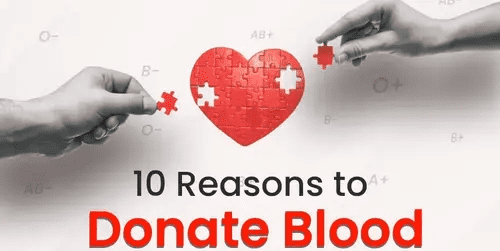
Learn how this vital procedure benefits patients with severe illnesses and how you may save a life by donating platelets to help others.
Scientific developments in medicine have given rise to a number of life-saving procedures in today’s quick-paced environment. The donation of platelets, a crucial component of contemporary healthcare, is one such medical marvel. Blood clotting depends on platelets, and patients with various illnesses might benefit greatly from their donation.
In this article, we’ll examine the value of platelet donation and how it contributes to healthcare in a life-saving way.
Understanding Platelets and their Role :
Our bloodstream contains platelets, which are very little blood cells. When an accident occurs, their main job is to create blood clots to stop excessive bleeding. A decrease in platelet count is frequently experienced by patients receiving chemotherapy, having organ transplants, or having specific blood abnormalities, which can cause life-threatening consequences. Therefore, platelet donation becomes necessary for replacing these vital blood cells and promoting healing.
Platelet Donation: The Process Unveiled :
Apheresis, another name for the procedure of donating platelets, is distinct from giving blood. A specialized device separates the platelets from the donor’s blood during a platelet donation and returns the other components to the donor’s body. This makes it possible to collect more platelets in a single session, giving patients who require it a more potent therapy choice.
Impact on Cancer Patients :
Patients’ immune systems might be severely suppressed and their platelet count can be decreased by cancer therapies including chemotherapy and radiation therapy. They run a greater risk of bleeding and infections as a result. By enhancing their capacity to recover and fight off infections, platelet transfusions from healthy donors can be life-saving for cancer patients, thereby raising the likelihood that their treatment will be successful.
Role in Organ Transplants:
Because they must take immunosuppressive drugs to avoid organ rejection, transplant recipients run the risk of bleeding and clotting problems. These patients are helped by platelet infusions from kind donors during their rehabilitation, enabling them to develop the strength required to adapt to the new organ and regain their health.
Assisting Patients with Blood Disorders :
Platelet production or function is compromised in people with certain blood illnesses, such as leukemia or aplastic anemia. For these people, regular platelet donations can be a lifeline, giving them the platelets they require to survive and enhance their quality of life.
The Heroic Act of Platelet Donation:
Giving platelets is a brave gesture that has the power to save lives. You become a ray of hope for patients in need by donating platelets. One platelet donation can support numerous transfusions, significantly affecting someone’s life and course of recovery.
Conclusion:
In conclusion, platelet donation is vital to the advancement of modern medicine. The lives of people dealing with serious medical issues could be drastically changed by these small blood cells. Donating platelets provides hope and healing for everyone affected by blood problems, from cancer patients to organ transplant recipients. You have the chance to have a significant impact on other people’s lives by donating platelets. Take advantage of the opportunity to save lives by donating platelets, and embrace your role as a hero. We can make the world healthier and kinder by working together.





